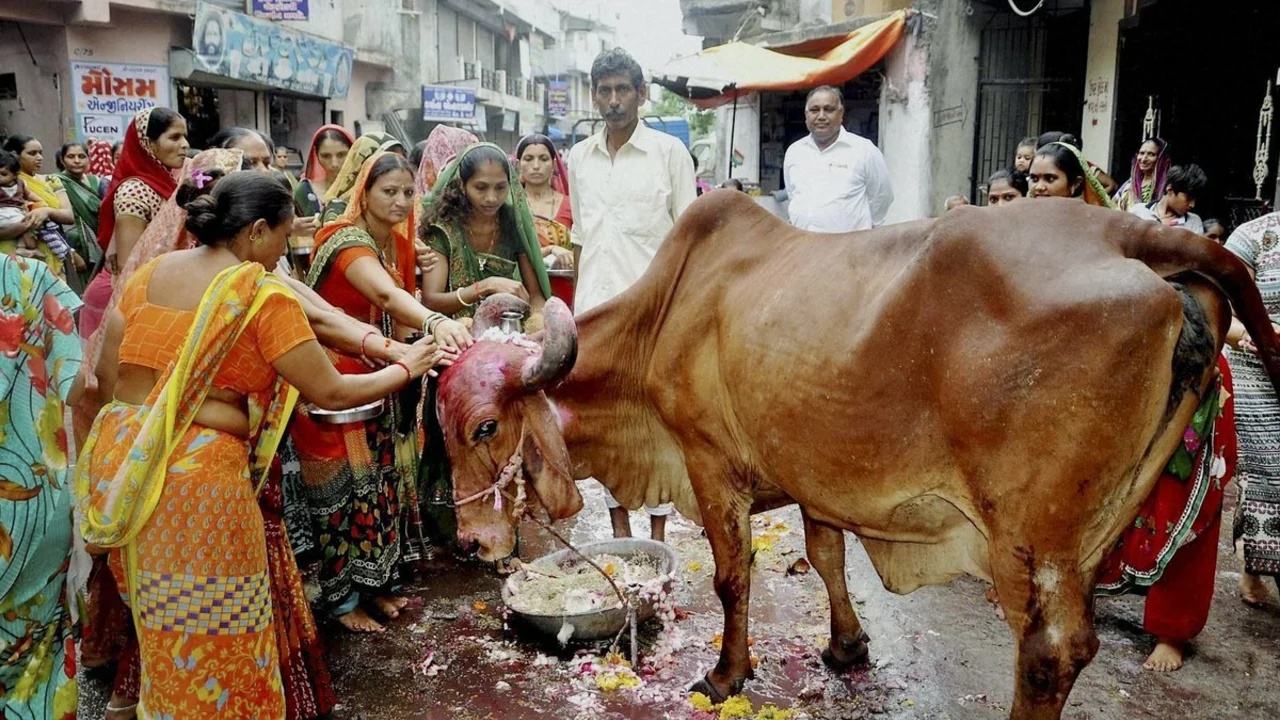The Sacredness of Cows in India
If there's one thing my feline companion Chai has taught me, it's that all creatures are unique, each with their own personalities and idiosyncrasies. It's something I've long extended to all animals I encounter, even to those seen as humble or common in some cultures. Today, however, we're turning our gaze to a creature often considered divine and sacred in the world's second-most populated country: the cow. In India, a nation rich in cultural and religious diversity, the cow holds an esteemed place. This reverence is largely due to the country's dominant religion, Hinduism, where cows are portrayed as symbols of wealth, strength, abundance, and a life-giving source.
It's fascinating, intriguing, and slightly baffling from an outsider's perspective to grasp fully the sheer extent of the sacredness tied to these gentle bovines in India. However, it's not just about religious significance. The cow is deeply embedded within the socio-economic fabric of India, with its products being utilised extensively in agriculture, medication, food, and even in religious rituals. Being an integral part of not just rural but urban life too, it's not uncommon to spot cows ambling languidly down metropolitan streets, immune to the bustling chaos that characterises Indian cities.
Cow Protection Laws
Moo-ving onto the legal side of things, in India, where diversity and tradition are the very threads of its society, the law also extends to protect and honour its bovine citizens. This has led to a slew of cow protection laws, the first of which emerged during the 19th century under British rule. The intent behind it was simple – to prevent cow slaughter and protect a sacred element of Hindu faith. Over time, the laws have evolved, some being stringently applied in specific states, making it a criminal offense to kill or harm a cow.
Coming to the pressing question that the title of this blog poses: "Will I be beaten, if I hit a cow on Indian streets?" Well, legally speaking, India’s constitution does mandate that it is the state’s obligation to protect and improve the environment and safeguard forests and wildlife. This entails protection of the cows. While the laws don't explicitly state punishment for hitting a cow, any harm done is likely to fall under animal cruelty, making you culpable. Cue here John F Kennedy's famous words, slightly tweaked to fit the context, ask not what your country's cows can do for you, ask what you can do for your country's cows.
This Isn’t a Black And White Situation
While the laws seem black and white, cows in India do face a dichotomy, a contradicting reality. As much as they're revered, often they're left to fend for themselves, wandering the streets while consuming plastic and other indigestible material, leading to a painful demise. This harsh reality underlines the complexity of the issue making it between a cow and a hard place scenario for the authorities.
While some states have taken steps to rescue and care for these cows, it still remains a huge issue. But, at an individual level, a proactive effort to drive change can be undertaken. Just like I wouldn't think of causing any harm to my beloved Chai, extending the same empathy, respect, and consideration to the cows I encounter not only abides by law but also the unwritten law of humanity. We can all make a difference, one cow at a time.
My Unforgettable Encounter in Rishikesh
Now, for a 'udderly' entertaining story. During my travels in India, I happened to be in Rishikesh, known as the "Yoga Capital of the World". I'd gone out for a stroll near the mighty Ganges, when I noticed a young cow approaching. In a trice, before I had a moment to react, I found my apple snatched away from my hand. I stood there, apple-less, while the bovine thief munched away merrily.
The incident, while initially upsetting, became a humorous and heartwarming memory. It also served as a powerful reminder of the connection we share with these animals and the need for respect and kindness towards them. We co-exist, sharing the same earth, breathing the same air, and living together in this carnival of life. And it's this multiplicity of existence, that we, quite often, forget.
In conclusion, so my dear readers, the answer to the question, "Will I be beaten, if I hit a cow on Indian streets?" should be pretty evident. It isn't about the fear of punishment, but the basic principle of respect towards all life. Remember, we share this planet with a dizzying array of creatures. Some, like my dear Chai, reside in our homes; others, like the cows in India, might cross our paths on international streets. They are all deserving of love and respect. So, the next time you cross paths with a cow, remember, it's not an invitation to test the strength of India's laws but an opportunity to show kindness and respect. Til' the next time!

